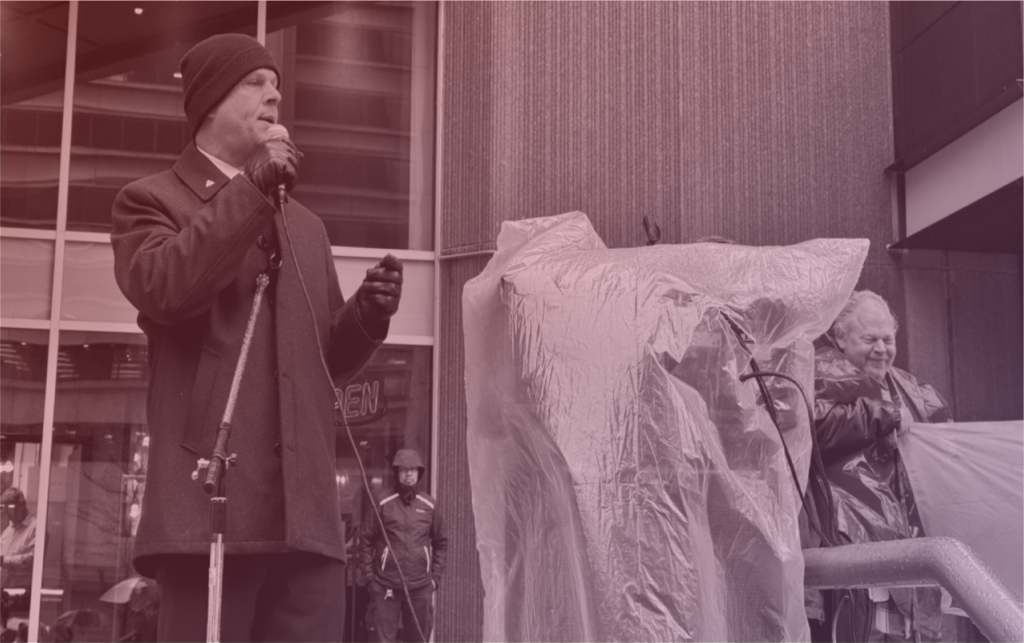
November 2, 2016
The Honourable Kathleen Wynne
Premier of Ontario
Legislative Building
Queen’s Park
Toronto, ON M7A 1A1
Dear Premier Wynne,
The evidence is clear maintaining stable employment is a key pathway for women who have experienced domestic and sexual violence to restore their lives. The financial security of employment promotes the economic independence needed to create a better quality of life, outside a violent destructive relationship.
A 2014 national study by the Canadian Labour Congress and Western University’s Centre for Research & Education on Violence Against Women & Children found that respondents who had experienced domestic violence said it hurt their job performance (82%). Many reported that the violence made them late or miss work (38%). Some reported actually losing their job (8.5%). (1)
We also know that domestic violence impacts others in the workplace. Over a third of coworkers reported their work performance suffered because of the stress they were feeling for their colleagues. Half of all Canadian women experience at least one incident of physical or sexual violence in their lifetime, with devastating direct and indirect consequences. This amounts to decreased productivity conservatively estimated at $78 million annually in costs to Canadian employers.(2)
A growing body of research shows that the benefit of supporting survivors of violence translates directly to a better bottom line for workplaces and society.
Important changes are happening in Canada and around the world. Under the Ontario Liberal government’s leadership, in June 2010, the province pioneered the first legislation in the world to include domestic violence in the definition of workplace violence under the Occupational Health and Safety Act. Six years later, in June 2016, Manitoba became the first province to pass legislation for five days of paid leave for survivors of domestic violence, guaranteeing job security while they take time off to sort out their lives and find a new place to live. Similarly in Australia, numerous unions have negotiated contracts that give paid leave for victims of domestic violence. There is growing global recognition that the investment made by employers to support survivors and to protect jobs and workplaces pays strong social returns.
For these reasons, the OFL is joining with cross-sector community partners including justice, health, education, violence against women, among others, strongly supporting Bill 26, Domestic and Sexual Violence Workplace Leave, Accommodation and Training Act, 2016. Bill 26 speaks to the pressing need to support victims of sexual and domestic violence with paid time off to see a doctor, attend a crisis centre, find a place to live, get counselling or go to court.
Legislation that includes mandatory training is needed to sensitize employers to the warning signs, impacts and risks so that they can develop informed, effective and appropriate measures of response. The Ontario bill goes beyond Manitoba with ten days of paid leave as well as unpaid leave and the opportunity for flexible work arrangements for victims of sexual as well as domestic violence.
We were very pleased to see your government’s support for Bill 26 Domestic and Sexual Violence Workplace Leave, Accommodation and Training Act, 2016 with the Bill unanimously passing second reading debate on October 20, 2016.
Violence against women is a non-partisan issue. The Ontario Federation of Labour is asking your government’s continued support and pass this bill as soon as possible. It is an important step toward ensuring that every woman in Ontario can live and work free from the threat of violence.
Sincerely,
CHRIS BUCKLEY
President
PATTY COATES
Secretary-Treasurer
AHMAD GAIED
Executive Vice-President
c.c. Hon Kevin Daniel Flynn, Minister of Labour
Hon Tracy MacCharles, Minister Responsible for Women’s Issues
—-
(1) Make It Our Business: www.canadianlabour.ca : Can Work Be Safe When Home Isn’t 2014
(2) Department of Justice 2012


